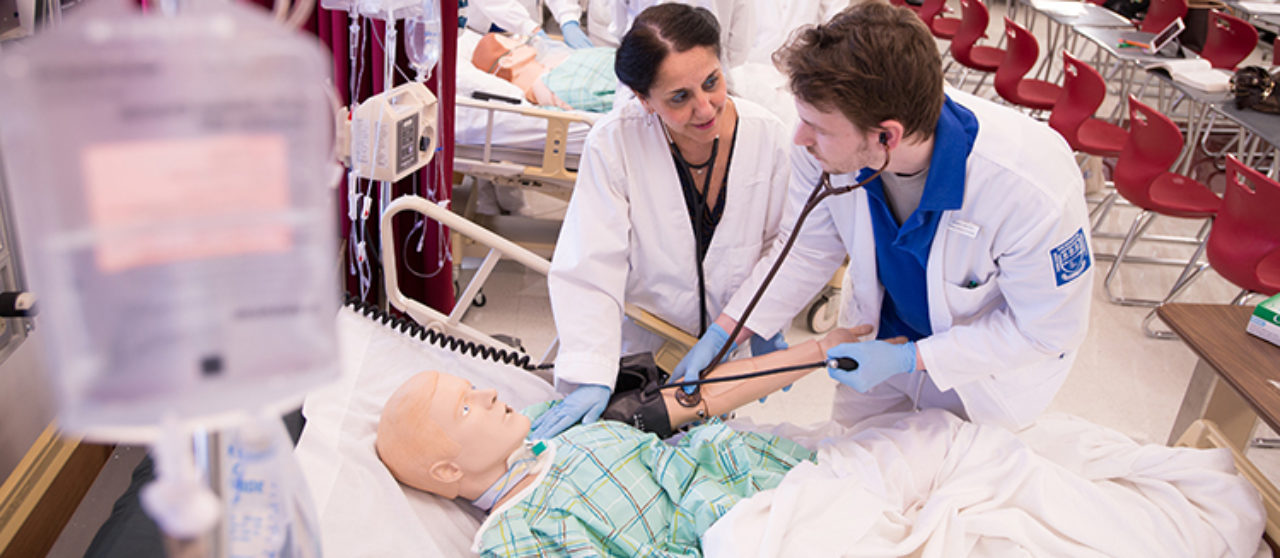Nursing Program Outcomes

The faculty of the College of Nursing and Allied Health has identified nursing program outcomes that are consistent with several guiding documents, including AACN Essentials; NLN Core Competencies; ANA Scope and Standards of Practice; ANA code of Ethics; QSEN Competencies; AONL Nurse Leader Core; and Healthy People 2030. Our curriculum supports the achievement of the end-of-program student learning outcomes and role-specific competencies for each degree level.
|
Domain |
BSN End-of-Program Student Learning Outcomes |
MSN End-of-Program Student Learning Outcomes |
DNP End-of-Program Student Learning Outcomes |
|
Knowledge, Science & Scholarship |
Demonstrate an understanding of nursing as a scientific discipline with distinct perspectives and with perspectives that are shared with other disciplines. | Apply disciplinary theory and knowledge, as well as knowledge from the arts and humanities, natural and social sciences, and other disciplines, to support role-specific judgment. | Support the ethical conduct of scholarly activities that advance the art and science of healthcare. |
|
Person-Centered Care |
Use assessment skills to identify actual or potential health problems and needs, and develop individualized plans of care. | Synthesize data as a basis for providing role-specific care/care coordination, and for evaluating the outcomes of care. | Facilitate context-relevant, advanced reasoning in decision-making for care/care coordination. |
|
Quality, Efficiency & Safety |
Select quality standards, including informatics processes, to provide safe care delivery. | Use informatics processes and communication strategies that contribute to a culture of patient safety. | Recommend evidence-based interventions that support a culture of provider and work environment safety. |
|
Interprofessional Teamwork |
Communicate in a manner that is professional, accurate and timely to promote a partnership approach to quality care delivery. | Practice self-assessment to mitigate conscious and implicit biases toward patients/clients and members of the interprofessional team. | Foster a climate of mutual respect and shared values, and the management of challenging conversations, to advance interprofessional learning. |
|
Population Health |
Describe the impact of social determinants of health and structural inequalities on health outcomes. | Promote processes that enhance healthcare access, relevance, and effectiveness to mitigate health disparities. | Evaluate population health policies using an ethical framework that considers cost, equity, and care outcomes. |
| Personal, Professional, and Leadership Development | Participate in activities and self-reflections that foster personal health, resilience, and well-being. | Demonstrate a sustainable professional identity that includes accountability, critical thinking, and the capacity for leadership and mentorship. | Integrate activities that promote emotional intelligence and a culture of lifelong learning into one’s leadership practices. |